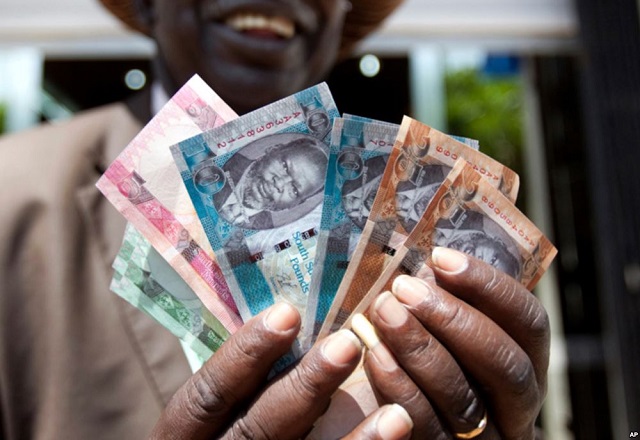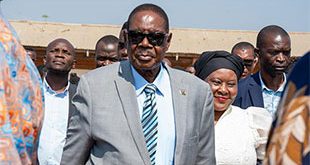
Juba, South Sudan | Xinhua | South Sudan’s government on Friday said it will soon be changing its currency in a bid to shore up its economy following continued depreciation of the pound against the U.S. dollar.
Michael Makuei Lueth, Minister of Information and Broadcasting said the decision came after the cabinet realized that the majority of the population were still holding on to the South Sudanese Pound (SSP) in their homes instead of banks.
“Most of the citizens are actually holding currency in their houses, and most of them hold the currency because they fear that when they take their money to the bank, it may be confiscated. So the cabinet has decided that the currency should be changed, so that anybody who does not take the money to the bank is left out and will lose it,” Lueth told journalists in Juba, after the weekly cabinet meeting.
“This is an advice to those who are holding the local currency in their houses to hurry it to the banks now, so that you avoid queuing up when the time comes for exchanging the currency,” he added.
President Salva Kiir earlier on set up the economic cluster committee to investigate mismanagement of non-oil revenue and also to come up with recommendations to revive the falling economy.
Lueth disclosed that the cabinet also resolved that the committee consisting of the minister of cabinet affairs, Governor of Central Bank, representatives of commercial banks and minister of finance come up with harmonized policy proposals on the economy by next week.
Currently, South Sudan is experiencing low volume of SSP circulation in the market amid skyrocketing prices of commodities due to speculation.
“The current currency will be changed and if it is changed and time comes up that it’s closed that currency that you have in your house will just be a mere paper,” Lueth warned.
He disclosed that this will happen when the select committee delivers its final report at next week’s cabinet meeting.
Lueth admitted all these efforts are aimed towards reviving the economy.
Oil-dependent South Sudan descended into conflict in December, 2013. Its economy was battered by more than seven years of conflict which affected oil production, its major source of hard currency.
Despite the government and opposition parties signing the 2018 revitalized peace deal in Ethiopia, the economy remains weak due to shortage of hard currency in the reserves of the central bank.
******
Xinhua
 The Independent Uganda: You get the Truth we Pay the Price
The Independent Uganda: You get the Truth we Pay the Price



